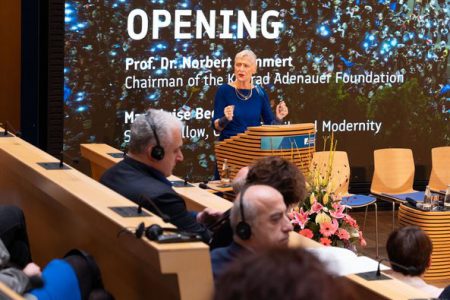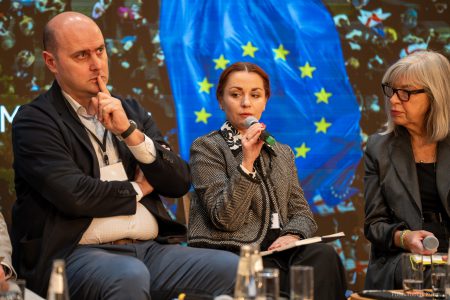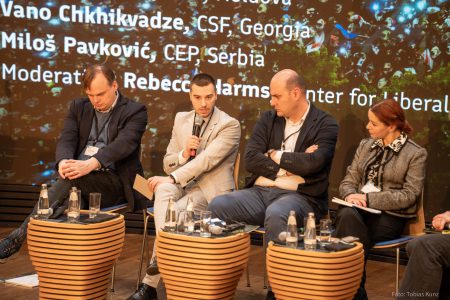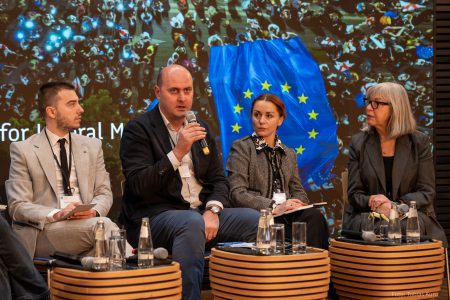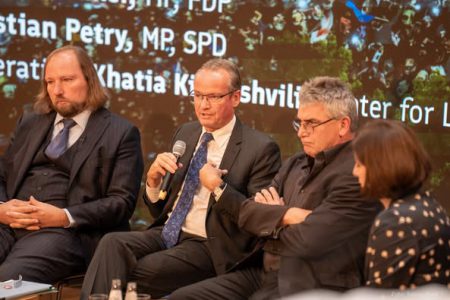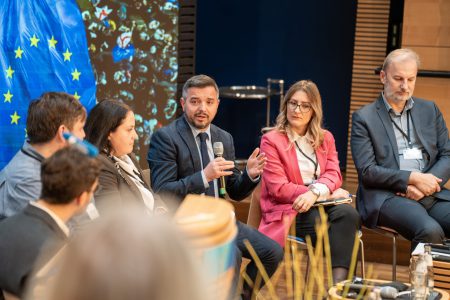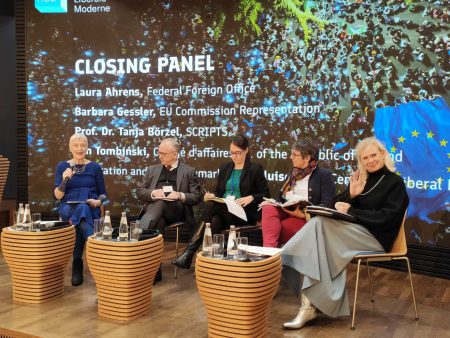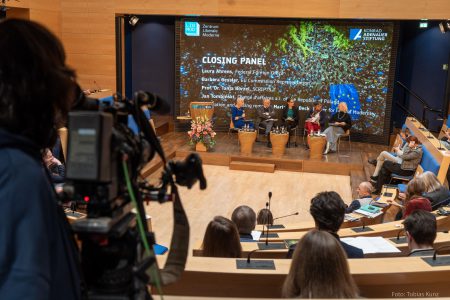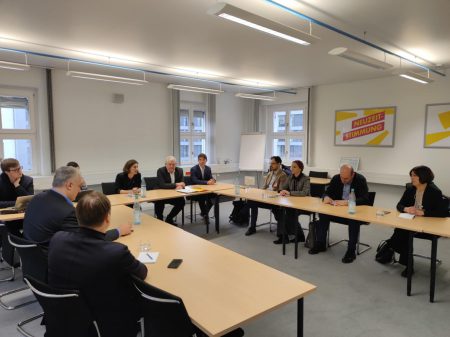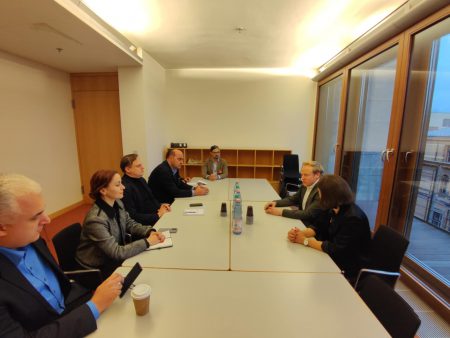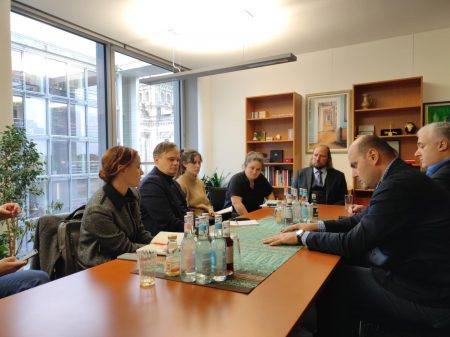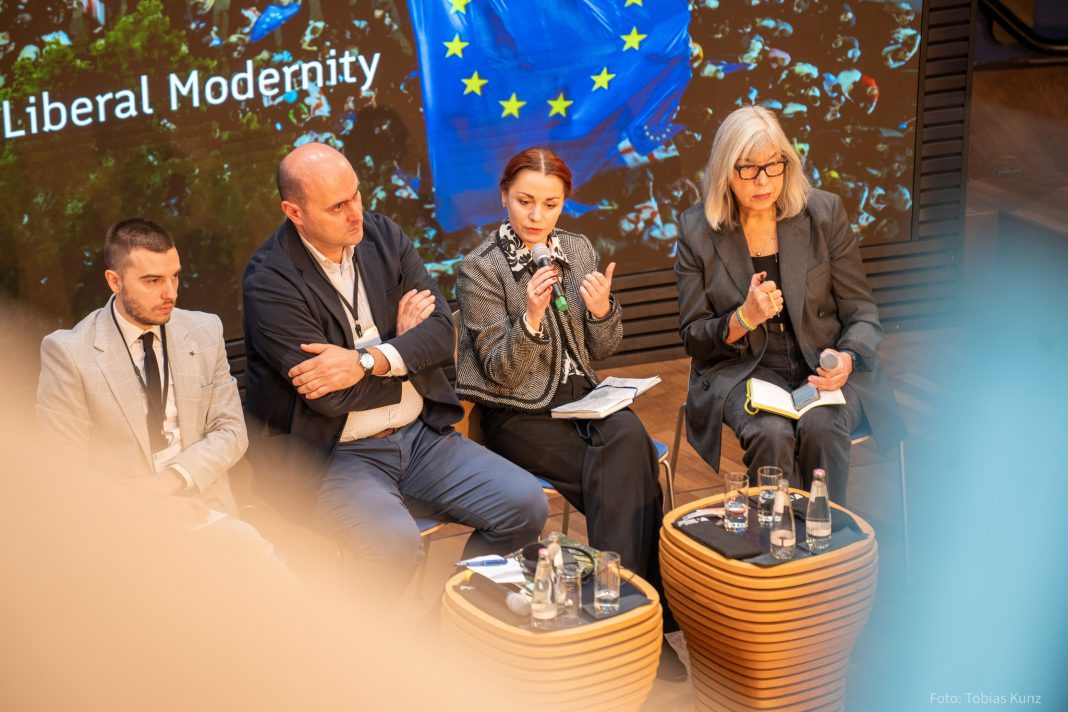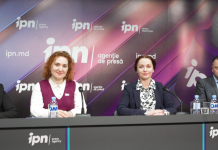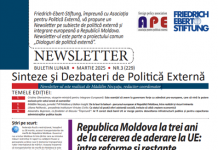Norbert Lammert, the Chairman of the Konrad-Adenauer-Stiftung opens the conference and sees “looking at the world in which we live, the need for shared solutions in Europe is as great as never before”. Marieliuse Beck, LibMod emphasizes the importance of “secure, so pay” for its own after the US elections.
The first panel of the LibMod international conference “Conditionality as a proven recipe for success for the implementation of reforms of EU accession candidates?”
Experts from Ukraine, Moldova, Georgia and Serbia (Dmytro Shulga, Natalia Stercul, Vano Chkhikvadze, Milos Pavkovic) share their specific but also shared experiences and challenges on their way to the EU accession process. In addition to the stronger engagement of the joining countries, all panelists also see a greater reception from the EU as a prerequisite for a successful expansion process. With regard to the Western Balkans, the stormy trial has strongly suppressed the motivation in the countries. It is emphasized how severely the accession process is affected by Russia’s massive military and hybrid attacks.
In the second panel of the international EU conference “Current challenges of EU expansion policy – what’s at stake?” the European-political spokespersons of the large Bundestag factions introduce important perspectives.
With a view to the war in Ukraine, Gunther Krichbaum CDU/CSU states: “We have felt far too safe in the EU for far too long.” Thomas Hacker , FDP, sees faster support for Ukraine – just under the influence of the US elections – as urgently needed. Anton Hofreiter, Alliance 90/The Greens, states: “We have not done enough to adequately protect a country under attack democratically.” He insistently warns of naivety and reluctance in dealing with Russia.
There is a consensus among all the speakers that a “step-by-step integration approach” is important for a swift and successful integration of the countries candidate to join. Christian Petry MdB, SPD, emphasizes that even in countries with governments unwilling to reform, the candidate status will open doors for further exchanges with the civilians.
The third panel “Intermediate steps on the way to EU membership – perspectives of the Western Balkan countries on opportunities and obstacles for gradual EU integration” representatives of civil society from the region discuss.
Adnan neterimagić (Bosnia and Herzegovina) draws a mixed picture of the consequences of gradual integration. On the one hand, for example, countries could benefit from the integration into the EU civil protection mechanism, on the other hand, there is little progress in many other areas. Ultimately, both the candidate states and the EU themselves would have to benefit from the continuation. Ines Stasa (Albania) stresses that in addition to economic issues, cooperation between the EU and the civil societies of the candidate states is essential. In addition, possible benefits for the population through EU integration should be more clearly communicated.
Aleksandar Kržalovski (North Macedonia) sees great opportunities for the Western Balkan countries in the gradual EU integration, even with the view of the widespread disappointment in large parts of the population. However, for further integration, he also sees the EU decision-makers responsible: “In the end, it’s about political will.” Dragana Jaćimović (Montenegro) points out that in practice it is often not clear what gradual integration actually is. Even Ramadan Ilazi (Kosovo) lacks clarity in the vision for the future of the candidates from the Western Balkans.
The final panel of our international EU conference focuses on the question: “What is the EU’s strategy for the future development of its enlargement policy and for its inclusion?” “
The head of the delegation of the EU-Commission in Berlin, Barbara Gessler, emphasizes at the beginning of the discussion that the European Union has always grown on crises in the past. Laura Ahrens, Head of the EU External Relations Department in the Foreign Office states that the EU must emerge strengthened from an expansion, be able to meet its objectives and tasks and be “fit for purpose”.
Jan Tombi Preisski, interim business person of the Republic of Poland in Germany, has a clear message in the context of the enlargement policy and the EU’s commitment to the candidate states: “The price of non-action is sometimes much greater than the price of action.” “The EU must take risks to make Europe more decisive in the world. “It’s also about Europe as a global player.” It is important to talk to the population a lot more about the potential benefits of expansion.
Tanja Börzel, head of the excellence cluster SCRIPTS Berlin agrees with this and explains that the cost of trading is rather short-term, but the cost of non-acting is rather medium- and long-term. This should also be seen in the logic of politics and election campaigns. With a view to the discussion about the acceptance of the EU, she states: “The inclusion of new Member States does not necessarily undermine the ability of the EU to act.”
After the conference, on November 14, LibMod was organized Advocacy talks with members of the Bundestag, in particular with Thomas Hacker MP, Spokesperson for European Affairs of the FDP Parliamentary Group, Anton Hofreiter MP, Chair of the Committee on the Affairs of the European Union (Alliance 90/The Greens) and Tilman Kuban, MP, Member of the EU-Committee CDU. The main topic was the EU accession process and the reforms in all three countries.
More details about the event you can find here: https://libmod.de/en/eu-enlargement-in-the-context-of-geopolitics-reform-requirements-and-absorption-capacity/
